- Your cart is empty
- Continue Shopping

Product
Description: Cellcept is a medication containing the active ingredient mycophenolate mofetil (MMF), which is a prodrug of mycophenolic acid (MPA). It is used as an immunosuppressive agent to prevent organ rejection in patients undergoing kidney, heart, or liver transplantation. Cellcept works by inhibiting the proliferation of T and B lymphocytes, which are involved in the immune response that leads to rejection of the transplanted organ.
Indications: Cellcept is indicated for the prophylaxis of organ rejection in patients receiving allogeneic kidney, heart, or liver transplants. It is typically used in combination with other immunosuppressive medications, such as corticosteroids and calcineurin inhibitors (e.g., tacrolimus or cyclosporine).
Mechanism of Action:
- Mycophenolate mofetil (MMF) is metabolized in the body to mycophenolic acid (MPA), the active form of the drug.
- MPA inhibits the enzyme inosine monophosphate dehydrogenase (IMPDH), which is involved in the de novo synthesis of guanosine nucleotides, essential for the proliferation of lymphocytes.
- By inhibiting this enzyme, MPA selectively suppresses the proliferation of T and B lymphocytes, thereby preventing rejection of the transplanted organ.
Administration:
- Cellcept is administered orally in the form of tablets.
- The tablets are typically taken on an empty stomach, either 1 hour before or 2 hours after meals, with a full glass of water.
- The dosage and administration schedule are determined by the treating transplant physician based on factors such as the patient’s weight, renal function, and immunological risk.
Dosage:
- The recommended dosage of Cellcept may vary depending on the type of organ transplant, the patient’s age, and other individual factors.
- It is usually initiated shortly before or immediately after transplantation and continued for as long as immunosuppression is required to prevent rejection.
Monitoring:
- Regular monitoring of kidney function, blood cell counts, and serum drug levels is essential during treatment with Cellcept to assess the response to therapy and detect any signs of adverse effects, such as bone marrow suppression or renal toxicity.
- Patients should also undergo periodic evaluations of immunological parameters to ensure adequate immunosuppression.
Side Effects: Common side effects of Cellcept may include gastrointestinal symptoms such as nausea, vomiting, diarrhea, and abdominal discomfort. Other potential side effects may include headache, fatigue, insomnia, and increased susceptibility to infections.
- Cellcept may also increase the risk of certain malignancies, particularly lymphoma and skin cancers, as well as the risk of opportunistic infections.
Precautions:
- Cellcept should be used with caution in patients with pre-existing gastrointestinal disorders, liver or kidney impairment, or a history of malignancy.
- It may interact with other medications, and patients should inform their healthcare provider about all the medications they are taking, including over-the-counter drugs and herbal supplements.
Consultation with Healthcare Professional:
- The use of Cellcept should be discussed thoroughly with a healthcare professional, typically a transplant physician or nephrologist.
- Patients should inform their healthcare provider about their medical history, existing health conditions, and any medications they are taking before starting treatment.
Duration of Treatment:
- Cellcept is usually taken on a long-term basis as part of a lifelong regimen for the prevention of organ rejection in transplant recipients.
- Treatment is typically continued indefinitely, and patients should adhere to the prescribed regimen to maintain adequate immunosuppression and prevent rejection of the transplanted organ.
Cellcept (mycophenolate mofetil) plays a crucial role in the prevention of organ rejection following kidney, heart, or liver transplantation, offering effective immunosuppression with a favorable safety profile. Its use involves careful monitoring and management of potential side effects to ensure optimal outcomes for transplant recipients.

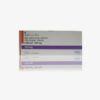

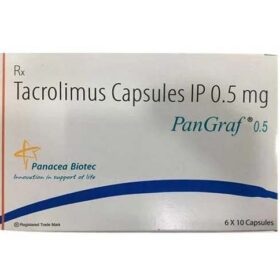
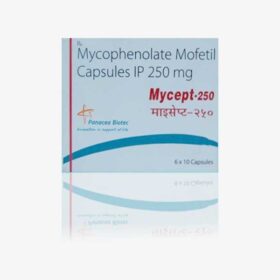


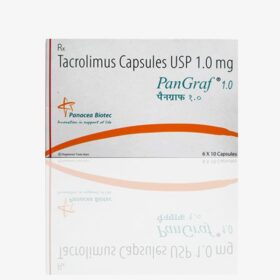
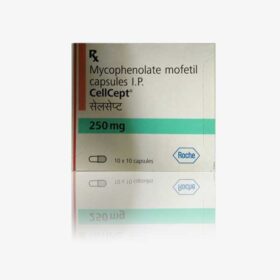
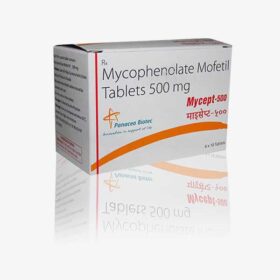



Reviews
There are no reviews yet.